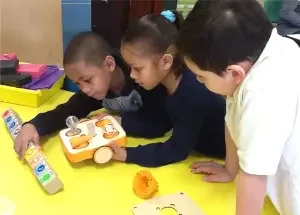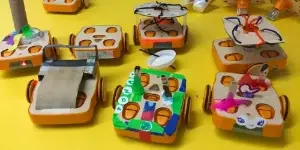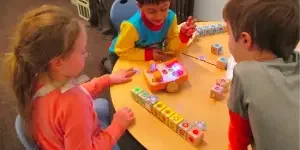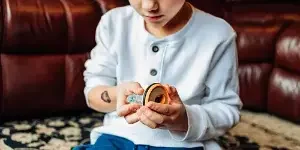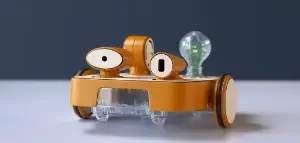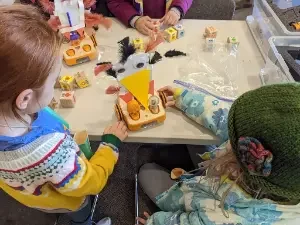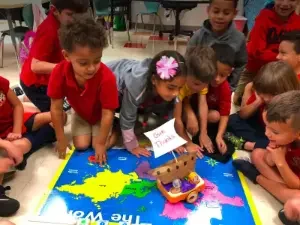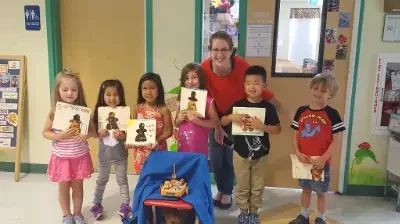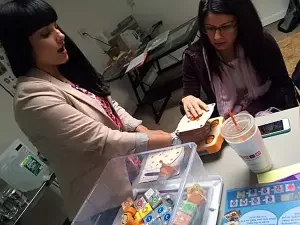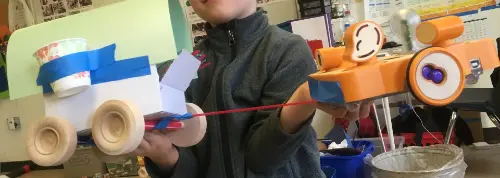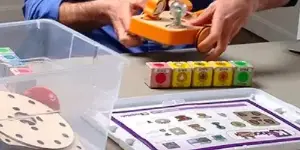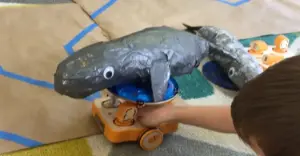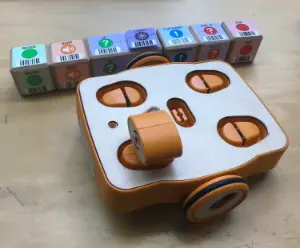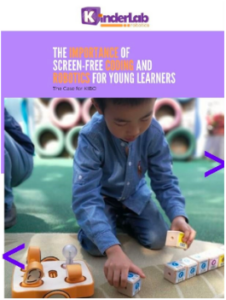Boston Herald: Robots Can Help us Teach our Kids Human Values
In this Boston Herald article, Dr. Marina Bers, our co-founder and chief scientist shares her thoughts about how coding and robotics can also teach values to young children. More can be found in her new book “Beyond Coding: How Children Learn Human Values through Programming”.
The article reads:
“After the social isolation caused by the pandemic, children’s slow return to classrooms and playdates has served as a stark reminder of the importance of teaching them human values from an early age. Human values depend on a community of people making the choice to live their lives in a way that benefits not only themselves, but those around them.
Given the extraordinary pressures facing parents and educators right now, how can they help these children, whose social interaction has been limited, to develop the human values they need to learn and live harmoniously in society? I believe that coding and robotics can play an important role. They can provide the opportunity to engage students in what I call “the coding playground.”
In the coding playground, children experiment with technical problem-solving while also exploring virtues and character strengths. In a physical playground, children not only run around, but also learn to communicate and resolve conflicts, negotiate and play together, just as in the coding playground they learn that collaborating in class makes them not only better learners, but better prepared for the future career paths that will require computational thinking.
But teaching kids coding should not be all about technical skills. Every coding project is an opportunity to become a critical thinker, a creative problem-solver and a team player. As children collaborate on computational projects and solve problems using different approaches, they’ll learn values such as persistence, curiosity and generosity — and they’ll learn a new language: the language of coding.
Like all languages, coding also depends on relationships: with technology, with ourselves and with others. Coding is not only a new literacy for the 21st century, but also an opportunity for children to experiment with relationships that require them to treat themselves, others and the world with respect. To my mind, this is one of the ultimate goals of education: getting to know others by building bridges across the barriers created by language, race, culture and religion.
Finding universal common ground within diversity was the goal of my project called “Beyond STEM: The Development of Virtues in Early Childhood Education Through Robotics.” It explored how the coding playground could help kindergarteners develop virtues in faith-based and secular classrooms in Boston and Buenos Aires, Argentina. Using the KIBO robot kit, which allows them to create coding sequences using wooden blocks, children and teachers worked together on robotics projects, but they also demonstrated creativity, curiosity, open-mindedness and even forgiveness.
How can we learn forgiveness through robotics? Consider this vignette, which I witnessed while I was researching my upcoming book. Two students named Yakov and Annie were working together to program KIBO to act like the main character of “There Was an Old Lady Who Swallowed a Fly,” moving from place to place and “eating” progressively larger animals. Annie wanted the robot to sing as it ate. Yakov wanted the robot to shake as it ate. Eventually Annie said, “If we don’t do the singing, then I don’t want to do KIBO with you anymore!” Yakov responded by collecting all the “sing” blocks and putting them behind his back.
When Annie announced that she didn’t want to play with Yakov anymore, the teacher intervened and said, “We can keep being angry, or we can apologize and try to find a way to program KIBO so everyone will be happy. What do you both want to do?”
After a moment, Annie suggested that the robot could sing and shake as it reached each animal. Yakov smiled and said, “I really like that!” Then they kept working together until their robotic “old lady” sang and shook before it ate the fly and the rest of the animals.
As we all look forward to a post-pandemic world, kids like Yakov and Annie who can communicate in the language of coding will develop their own voices and grow up to play a role in both the economy and civic society. They will have the technical knowledge to change the world, but they will also have something more powerful: strong character and a moral compass to navigate a global society in which human values will serve as the universal language that will bring the world together again.”

